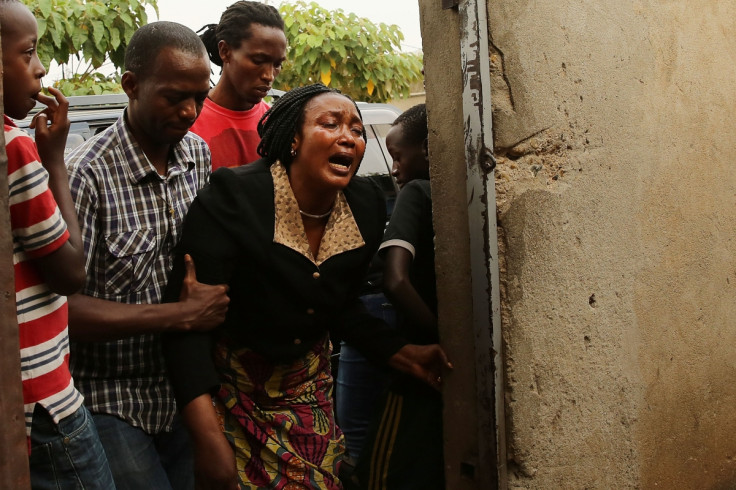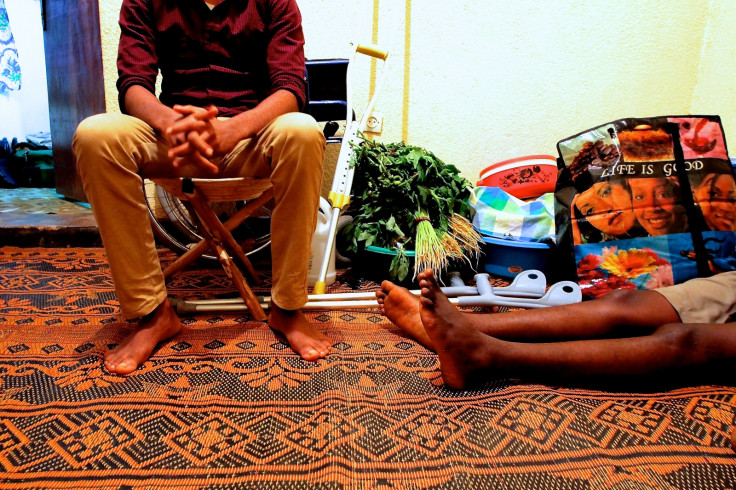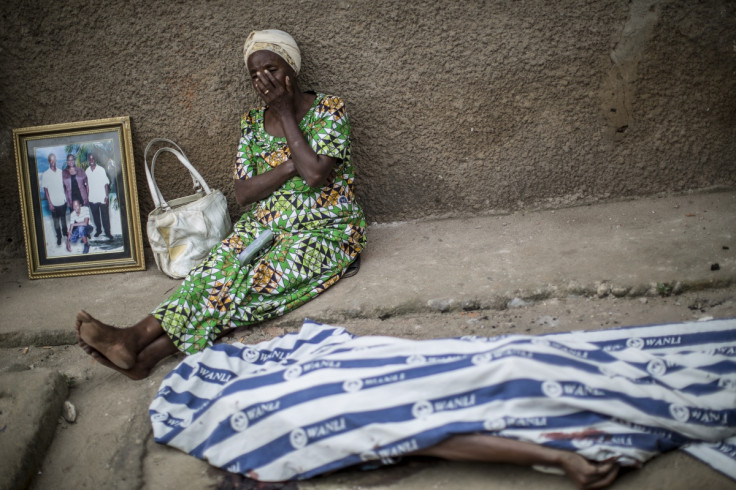Rwanda: Decision to expel refugees 'diverts attention from Burundi's real, bloody issue'

Rwanda's decision to relocate 75,000 Burundian refugees, including many journalists, activists and human rights defenders who have fled the ongoing violence and brutal repression in Burundi, is a way to divert attention from Burundi's massacres, activists have claimed.
Up to 900 people are reported to have been killed since April after President Pierre Nkurunziza announced a controversial decision to run for a third term, which he won in contested elections in July 2015. Scores of bodies are reportedly still being found in the streets, in tit-for-tat violence pitting pro-Nkurunziza forces against insurgents in a region where memories of Rwanda's 1994 genocide and Burundi's 12-year civil war are still strong.
The Rwandan government announced on Friday (12 February) it would start relocating Burundian refugees to "third countries" just days after the United States raised concerns over reports that Rwanda may be involved in "destabilising activities" in neighbouring Burundi (See box below − Rwanda: Destabilising Burundi?).
International community's attention diverted
"It's not Rwanda's way of diverting attention, but rather the international community's way of shifting attention away from a conflict that has been lingering for the past nine months. We have violence, killings and we are all screaming for help but help isn't coming," Marie Louise Baricako, a Burundian professor and women rights activist, who was an advocate during the Arusha peace talks, told IBTimes UK in an exclusive interview.
This month, the African Union (AU) said it would send a delegation rather than 5,000 peacekeepers to Burundi to stop the country from spiralling into anarchy, a move many commentators have criticised.
"If today we are saying that Burundi's biggest problem is Rwanda, are the people getting killed in the neighbourhoods of Bujumbura massacred by Rwanda? Burundi needs to resolve its biggest issue − the protection of its population that is being killed. And when that is done, then we can protect our borders, but let's not divert our attention from Burundi."
While Baricako, whose association is linked to the inter-Burundian dialogue, insisted she understands Rwanda's decision and is not taking it as a rejection by Burundi's neighbour. The activist said that by diverting the attention away from the real issue, the international community is failing in its duty of solidarity towards Burundians.
Rights group Amnesty International this month claimed it has found five possible mass graves near Burundi's capital, Bujumbura, where security forces were accused of killing dozens of people in December.
"That's what hurts the most: everyone knows about the seriousness of the crisis in Burundi. But instead of solving the issue at the root − the issue that is really Burundian − we are trying to manage it by diverting attention of everyone, including the international community, which has the obligation to protect populations."

Decision shows failure to protect civilians
This view is echoed by Vital Nshimirimana, president of "Halte au troisième mandat" (Stop the Third Mandate) and president of the Forum for Strengthening the Civil Society (FORSC), a platform of 146 organisations of civil society in Burundi.
"Burundi's regime has managed to ensure that the questions of the third mandate and the consequences of the serious violations of human rights have been forgotten in favour of a diversion that the regime is slowly creating, and that is succeeding, where all the responsibilities are put on Rwanda, Belgium and an ethnic community qualified as 'nostalgic' about power," Nshimirimana exclusively told IBTimes UK.
According to the campaigner, Rwanda's decision, which he claims stems from a "a clear failure of the international community" to protect civilians, also translates"a grave crisis that is affecting the sub-region, that arises from the serious deterioration of relations between Burundi and neighbouring countries".
Nshimirimana questioned the international community's focus.
"It's surprising that we are witnessing the fact that the rhetoric affirming that Rwanda is recruiting and organising paramilitary units is gaining ground. It's also regrettable that the UN and the AU would fall for such accusations," he said from Rwanda's capital Kigali, where he is also registered as a refugee.

Where will Burundian refugees go?
Slamming the accusations as "false", Nshimirimana insisted the main group of refugees currently residing in Rwanda was made up of journalists, human rights defenders and activists "whose peaceful activity is proved and who will never undertake violent actions".
The re-localisation of this group could have the consequence of "alienating" the key actors of Burundi's national life, he insisted.
Few details are known about Rwanda's plan − only that the relocation of an estimated 70,000 refugees will start immediately, the government said on 12 February.
"But where are we going to put these refugees? We are we going to go? Kenya? Uganda? Tanzania? Congo? The US or China?" Baricako, who is also a refugee in Rwanda, asked. "It's not good for the dignity of the people. Why should our people be delocalised from Burundi in the first place? Why can't we go back to build our country up again?"
Rwanda: Destabilising Burundi?
In August, IBTimes UK exclusively revealed that rebel touts were trying to recruit young people in refugee camps in Rwanda.
Read more: 'You are young and must fight' − How rebel touts manipulate young men toward armed conflict
A leaked memo to the United Nations (UN) Security Council earlier this month accused Rwanda of recruiting and training Burundian refugees with the goal of ousting Burundian President Pierre Nkurunziza.
The confidential report by experts who monitor sanctions on Democratic Republic of Congo (DRC) contained accounts from 18 Burundian rebel fighters in eastern DRC's South Kivu province, who told them the training was done in a forest camp in Rwanda, according to Reuters.
"They all told the group that they had been recruited in the Mahama Refugee Camp in eastern Rwanda in May and June 2015 and were given two months of military training by instructors, who included Rwandan military personnel," according to the report.
Read more: Rwanda accused of training Burundian rebels, UN experts claim
Refugee International, meanwhile, claimed non-state armed groups, such as rebel groups and militias, were allegedly using the cover of refugee camps in Rwanda to recruit Burundian refugees and children, in what campaigners are describing as a potential violation of international law.
Read more: Children in refugee camps in Rwanda recruited as soldiers
© Copyright IBTimes 2025. All rights reserved.






















